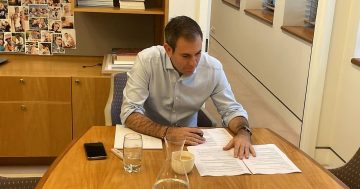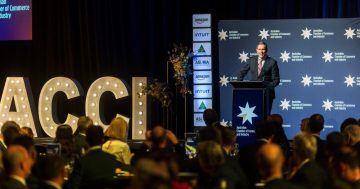If retiring early is on your mind Tom Noad* has some some lifestyle, financial and tax matters to consider before making the transition to life after work.
 While taking early retirement is a dream scenario for many people, it can end up being more ideal in principle than in practice.
While taking early retirement is a dream scenario for many people, it can end up being more ideal in principle than in practice.
Giving some careful thought to what you expect from retirement and the income you’ll be needing to make the most of it, are both worth discussing before taking steps to retire early.
Your lifestyle
A conversation about what life after work might be like for you is a good starting point for exploring early retirement as an option.
If you’re likely to be retiring well before your peers, friends and colleagues, you might be looking for ways to build a new social network through volunteering, joining a club or spending more time on sports or hobbies.
If relocation is on the cards for your retirement, putting some time in to connect with your new community will be even more important.
Some of your personal and lifestyle choices – including travel plans and providing financial support to family – can make a significant difference to your retirement budget.
Being clear on what you expect from life in retirement will help you prepare yourself, emotionally and financially, for what’s to come.
Your finances – superannuation
In some cases, the longer you’ve been a member of the scheme, the higher your benefit. So, retiring early could mean your final benefit is significantly less.
Whether you have your super in a defined benefit or accumulation fund, you should also be aware of how a smaller pool of savings is going to affect your retirement income in five years, 10 years and beyond.
Retiring early could mean relying more on the age pension or other investment income in the future to supplement payments from your super.
It’s also essential to know how old you need to be to start drawing an income from your super.
Defined benefit scheme members may have access to a pension from their benefit from age 55 and this is the case for Police Superannuation Scheme (PSS) members, for example.
For accumulation fund members, it’s a case of waiting until your preservation age — currently 60 for people born on or after 1 July 1964[1] — until you can start to draw on your super savings.
When you’re retiring and still too young to rely on super as your main source of income, you’ll need to be sure your savings, or income from other assets, will be enough to live on.
If retiring early is going to mean you’re relying on strong returns from your investments to provide you with a better income, you need to consider the risks.
When your savings are at their highest just before retirement, a fall in their value thanks to negative returns will have a big impact on how your retirement savings and income will last.
Your finances – tax
Your age at retirement is also important to how your income — including any pension paid from your super — will be taxed.
If you’re receiving a lifetime pension from your defined benefit scheme but haven’t reached your preservation age, you’ll pay tax at the marginal rate on the taxable part of this income.
After passing your preservation age, you may also be entitled to tax offsets.
From age 60, depending on which scheme your pension comes from, some or all of it may be tax-free.
Take the next step
With the right help, planning for your retirement is easier than you think. For more expert tips, visit the StatePlus website at this PS News link.
* Tom Noad is a registered financial planner with StatePlus and can be contacted at [email protected].

[1] www.ato.gov.au/Individuals/Super/Accessing-your-super/
StatePlus, formerly State Super Financial Services, is one of Australia’s leading providers of financial planning. Since 1990, our retirement experts have provided life changing financial advice to public sector employees and their families. With a StatePlus planner by your side, you can feel confident about reaching your financial goals to live the retirement you really want.
This article was published in June 2018. This information is correct at the time of writing. This is general information only and does not take into account your personal objectives, financial situation or needs. It is important to seek financial and taxation advice that takes into account your personal objectives, financial situation and needs before making any decisions based on this information.











